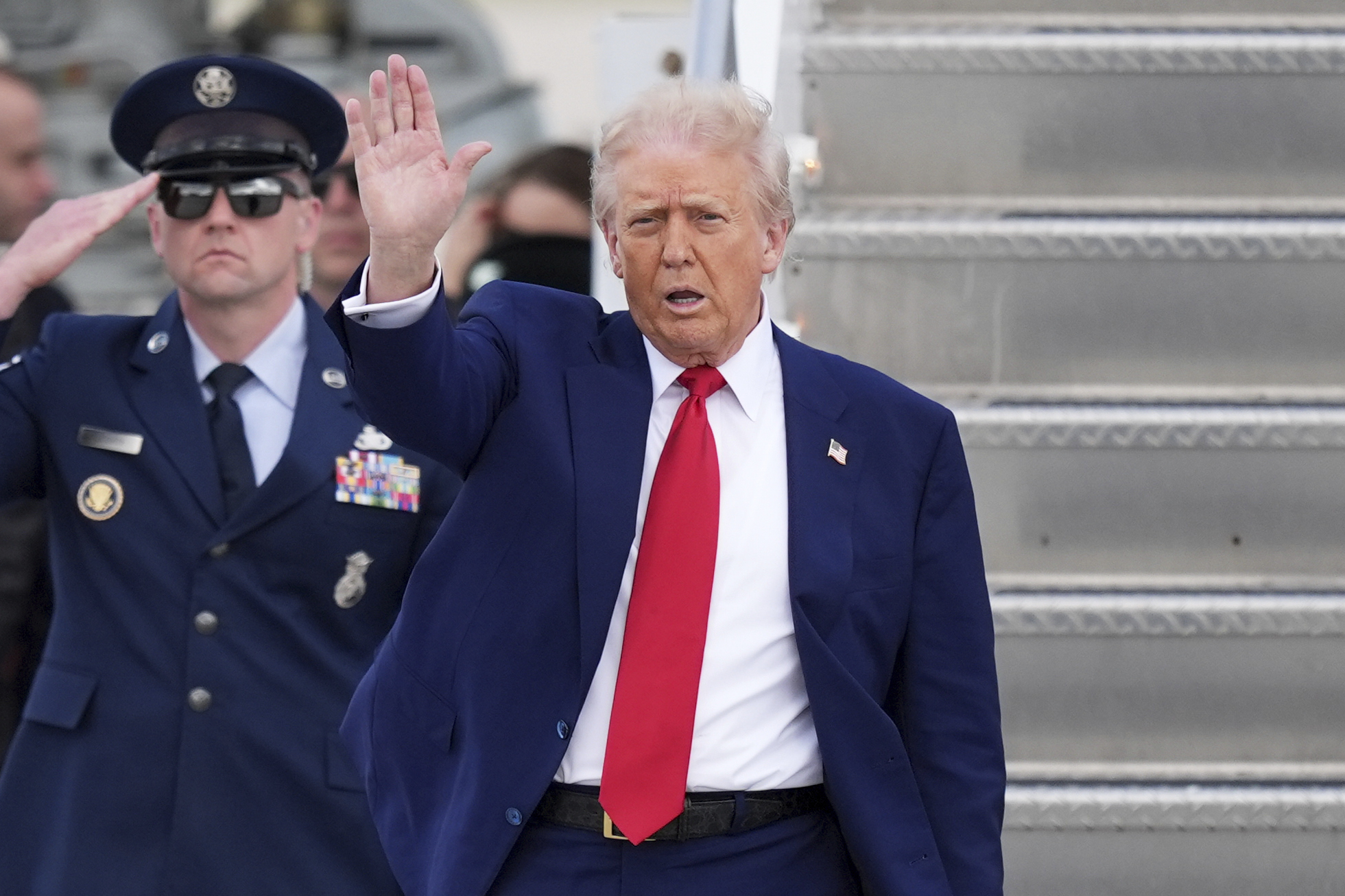As the global markets plummeted for a second consecutive day in reaction to Donald Trump‘s tariffs announcement, the president has shared a video on social media that claims that the crash is intentional.
Trump posted a link to the video to Truth Social, his social media platform, on Friday morning. The video’s caption on X, formerly Twitter, reads: “Trump is playing chess while everyone else is playing checkers.”
The video opens: “Trump is crashing the stock market…but he’s doing it on purpose.”
Newsweek reached out to the White House via email for comment.
Why It Matters
Wall Street had its worst week in five years after Trump announced sweeping tariffs on nearly 200 countries.
By market close on Friday, the S&P 500 index was down nearly 6 percent and the Dow Jones Industrial Average was down 5.5 percent. The tech-heavy Nasdaq composite index lost 5.82 percent.
The markets were sent spiraling after Wednesday’s announcement that the U.S. was imposing a 10 percent “baseline” tariff on virtually all imports. Several countries had much higher rates, including 34 percent on China, 46 percent on Vietnam, while a 20 percent rate was imposed on the European Union (EU).
China has already responded with its own 34 percent levy on U.S. goods, while the EU is weighing its own response as the trade war ramps up.
What To Know
The video, which originally comes from TikTok user @wnnsa11, was posted to X on Thursday evening by pro-Trump account “AmericanPapaBear,” and claimed that Trump is playing a “secret game” which could “make you rich.”
The video’s voiceover says: “So why is he doing this? To push cash into treasuries which forces the Fed to slash interest rates in May and those lower rates give the Fed the ability to refinance trillions of debt very inexpensively. It also weakens the dollar and drops mortgage rates. Now it’s a wild chess move but it’s working.”
The video continues: “You’re probably wondering what about his tariffs, well I’ll tell you; it’s a genius play. It actually forces companies to build here to dodge them, it also forces farmers to sell more of their products here in the U.S. to bring grocery prices way down. Now remember, 94 percent of all stocks are owned by only 8 percent of Americans, so Trump he’s taking from the rich short term and handing it to the middle class through lower prices.”
@wnnsa11’s video was posted to TikTok on March 15 and currently has 2.5 million views.
Despite the video’s suggestions, Federal Reserve Chair Jerome Powell said Friday that he believes the tariffs will likely lead to higher inflation and slower economic growth.
His comments suggest that the Fed will likely keep its benchmark interest rate at around 4.3 percent in the coming months and is unlikely to cut it any time soon.
“Our obligation is to…make certain that a one-time increase in the price level does not become an ongoing inflation problem,” Powell said at a conference of the Society for Advancing Business Editing and Writing.
Trump insisted on Thursday that markets will “boom” thanks to his tariffs.
Rebecca Blackwell/AP
What People Are Saying
When asked about the tumbling markets on Thursday, President Donald Trump told reporters: “I think it’s going very well. It was an operation. I like when a patient gets operated on and it’s a big thing. I said this would exactly be the way it is. We have six or seven trillion dollars coming into our country and we’ve never seen anything like it.”
He added: “The markets are going to boom, the stock is going to boom, the country’s going to boom. And the rest of the world wants to see, is there any way they can make a deal. They’ve taken advantage of us for many, many years. And many years we’ve been at the wrong side of the ball and I’ll tell you what, I think it’s going to be unbelievable.”
Gordon Hanson, professor of urban policy at Harvard Kennedy School, told CNN: “It’s possible to bring some jobs back, but not enough to restore what I think the Trump administration is trying to accomplish, and that is to take us back to 1950, when manufacturing accounted for 35 percent of employment in America and provided good jobs for workers without a college education, allowing them to attain the American dream: the middle-class lifestyle. Today…you’re not creating substantial numbers of good jobs [in manufacturing]. That’s got to happen in services, it’s got to happen in health care, it’s got to happen in information technology, targeted towards workers without a college degree.”
Mary Ann Bartels, chief investment strategist at Sanctuary Wealth, told CNBC: “This was the worst-case scenario for tariffs and [they] were not priced into the markets, which is why we are seeing such a risk-off reaction.”
What Happens Next?
The 10 percent “baseline” tariffs will take effect on April 5 and the reciprocal tariffs will kick in on April 9.


